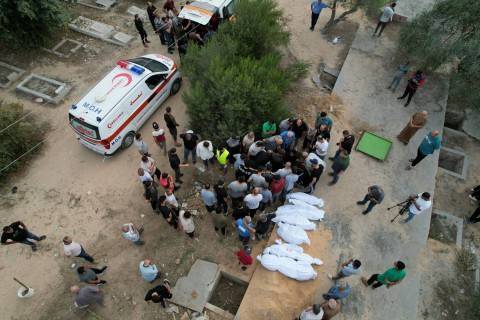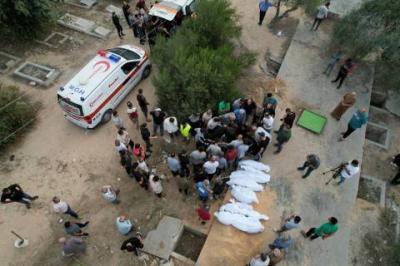An Israeli official announced on Thursday that discussions are taking place with medical organizations regarding the establishment of field hospitals in the southern part of the Gaza Strip, which civilians have been advised to head to for safety amid the conflict with Hamas in the north. Colonel Elad Gorin from the Coordinator of Government Activities in the Territories, a unit of the Israeli Ministry of Defense, stated that the initial idea was to meet the general needs of the injured with the possibility of later transferring them to places for more specialized care.
He added to Reuters, "Now, we are talking about field hospitals that will provide the necessary basic medical care for war injuries." He continued, "Field hospitals can be equipped to offer specialized medical care due to their pre-existing structures, but that will be at a later stage. The question of where to find specialized staff is also raised."
The health authorities in the Hamas-controlled Gaza Strip report that Israeli airstrikes have resulted in the deaths of over nine thousand Palestinians in Gaza, including more than 3,700 children. Over a third of the 35 hospitals in the area have ceased operations, many of which have turned into temporary refugee camps, and some rescuers are using horse-drawn carts instead of ambulances.
The Medical Aid for Palestinians charity described the situation in hospitals as "more than catastrophic" amid fuel shortages, overcrowded hallways, and many paramedics themselves being bereaved and homeless. Gorin mentioned that 700,000 of the one million residents of northern Gaza have moved south.
He continued, "We are not at war with the civilians of Gaza. We are doing everything possible to bring in more humanitarian aid," adding that the number of aid trucks entering Gaza remains limited due to logistical challenges, not Israeli restrictions. He pointed to how quickly trucks can be loaded with aid at the Al-Arish airport in Egypt and the number of trucks available in Gaza.
He stated, "Currently, about 80 trucks head to Gaza daily." Relief organizations say this is a small fraction of the number needed considering the scale of the humanitarian disaster. Gorin mentioned that Israel is holding discussions on "quality versus quantity" with donors. He added, "For example, we are asking them not to send items like legumes that need to be cooked and instead to send ready-to-eat canned food."




